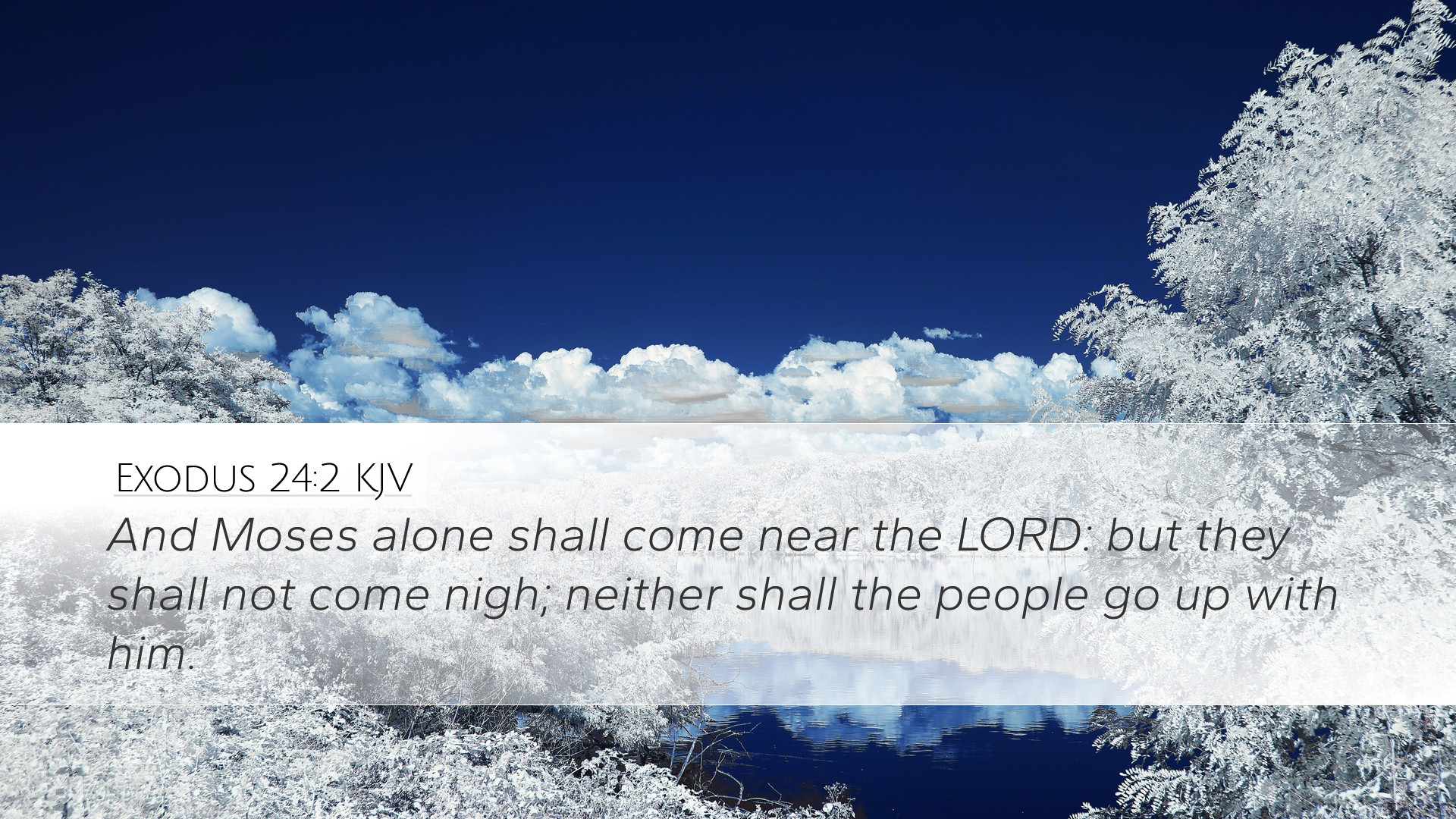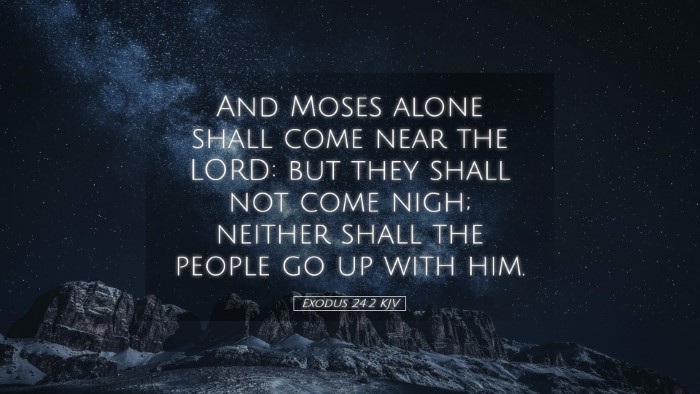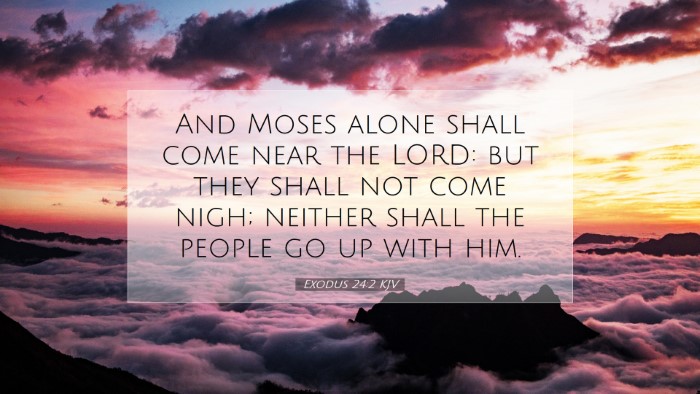Exodus 24:2 - A Comprehensive Commentary
Verse: "And Moses alone shall come near the LORD: but they shall not come near; neither shall the people go up with him."
Introduction
This verse serves as a pivotal moment in the narrative of Exodus, highlighting the unique relationship that Moses had with God. The separation of Moses from the rest of the Israelites signifies both his role as mediator and the holiness of God's presence.
Contextual Analysis
Before delving into the commentaries, it is crucial to understand the context of Exodus 24. The preceding chapters outline the giving of the Law at Sinai and the covenant established between God and Israel. The Israelites, having been delivered from slavery, are now on the threshold of a new identity, one marked by divine law and covenant allegiance.
Moses as Mediator
Matthew Henry's Commentary: Henry emphasizes the significance of Moses as the chosen mediator between God and the people. His solitary ascent to God underscores the unique calling upon his life, considering that he was the only one deemed worthy to approach God's presence. This situation mirrors the New Testament understanding of Christ as the ultimate mediator (1 Timothy 2:5).
Albert Barnes’ Notes: Barnes discusses how the phrase “Moses alone shall come near” indicates a level of intimacy and trust between Moses and God. It suggests that the Israelites must recognize their limitations in approaching God directly, which sets the foundation for their understanding of God's holiness.
Adam Clarke’s Commentary: Clarke expands this thought by noting that Moses had to draw near to God on behalf of the people. This signifies a great responsibility resting on Moses, serving as a connection between the Divine and the nation of Israel. His role is not merely to ascend but to return with divine instructions for the community.
Holiness and Separation
The meticulous instructions regarding access to God's presence paint a picture of divine holiness and human limitations.
Understanding Divine Holiness
- Matthew Henry: Henry highlights that God's invitation to Moses emphasizes the importance of holiness. The Israelites must respect the sanctity of God’s presence, understanding their need for a mediator.
- Albert Barnes: Barnes points out that the restriction placed on the people serves to instill a sense of godly fear and reverence, vital for their spiritual growth and recognition of God’s majesty.
- Adam Clarke: Clarke notes that this separation is not meant to alienate the people from God, but rather to cultivate a deeper respect for divine authority and a desire to seek guidance through Moses, which parallels the need for spiritual leaders today.
The Role of the People
The prohibition against the people's approach to God reflects their spiritual state and the need for collective preparation.
Collective Preparation for Divine Encounter
- Matthew Henry: He insists that the people's inability to approach God invites a meditative attitude and readiness to listen to God’s revelations through Moses.
- Albert Barnes: Barnes suggests that the people’s distance serves as a reminder of their sinfulness. It invokes an understanding of grace that Moses embodies as he represents their collective voice before God.
- Adam Clarke: Clarke posits that this moment foreshadows the eventual access to God that believers enjoy through Christ, reinforcing the idea that spiritual access must be pursued through appointed channels.
Theological Implications
Exodus 24:2 holds rich theological implications relevant for both ancient Israel and modern readers. This verse symbolizes the intricate relationship between God’s holiness and human unworthiness, a dichotomy present throughout Scripture.
The Priority of Divine Revelation
- Matthew Henry: Henry points out that God chooses to reveal Himself progressively, allowing humanity to grow in knowledge and grace. The presence of Moses underscores the importance of divine revelation through human agents.
- Albert Barnes: Barnes emphasizes that this moment invites readers to grasp the depth of God’s self-revelation. It is an invitation into deeper fellowship that requires response and obedience from the people.
- Adam Clarke: Clarke argues that the theological significance of mediation is crucial for understanding not just Moses but the future of God’s redemptive plan culminating in Jesus Christ.
Conclusion
Exodus 24:2 invites deep reflection on the nature of God’s holiness and the role of mediation. It echoes the essential truth that access to the Divine comes through humility, acknowledgment of His greatness, and the appointed figure of Jesus Christ for believers today. The multifaceted commentary provided by Henry, Barnes, and Clarke reaffirms the enduring truths of Scripture while offering profound insights relevant for pastors, theologians, and students alike.


